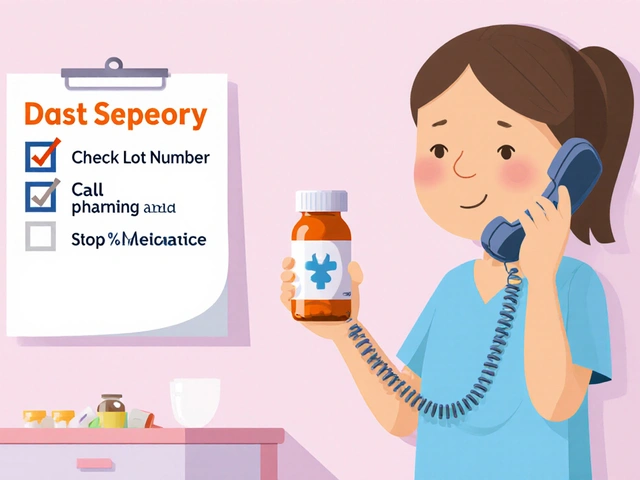Long-term nitrate use: practical tips to stay safe and keep them working
Nitrates — think nitroglycerin (sublingual or spray), isosorbide mononitrate, and isosorbide dinitrate — ease angina by widening blood vessels. Used over months or years, they still help, but you need to know a few simple rules so they don’t stop working and you don’t get hurt. This short guide gives clear steps you can use today.
Preventing tolerance and keeping relief reliable
The biggest problem with long-term nitrate use is tolerance: your body adapts and the drug loses effect. Doctors usually build a daily nitrate-free interval to prevent that. For patches, remove them for about 10–12 hours each day (often overnight). For long-acting pills, your prescriber will arrange dosing so you get a similar drug-free window. If you notice more chest pain during the nitrate-free time, call your clinician — the plan may need tweaking or a different drug might be better.
Side effects, storage, and simple fixes
Headache is the most common side effect. It often eases after a few days; lie down and rest, and use paracetamol if needed. Low blood pressure and dizziness can happen, especially when standing up quickly. Check your blood pressure at home if possible, and stand slowly after sitting or lying down. If you faint or feel very lightheaded, seek medical help right away.
Patch users: rotate the site each day and avoid putting a new patch over irritated skin. If the patch causes persistent redness or blistering, stop using it and see your doctor. For sublingual nitroglycerin, store the tablets in the original glass bottle, away from heat and moisture, and replace the bottle six months after opening. Keep sprays capped and store at room temperature.
Know how to use rescue nitroglycerin: sit down, place one tablet under the tongue (or use one spray), wait five minutes. If pain persists after five minutes, you may repeat once more and call emergency services if there's still no relief. Don’t drive if you feel dizzy or very weak.
One life-or-death interaction to remember: never mix nitrates with PDE5 inhibitors like sildenafil (Viagra), tadalafil (Cialis), or vardenafil. The combination can cause a dangerous drop in blood pressure. If you take a PDE5 inhibitor, tell anyone treating you for chest pain. In an emergency after taking both, tell paramedics immediately.
Keep regular follow-ups. Your doctor will check blood pressure, review other medicines, and decide if nitrates remain the best option. If you develop worsening angina, sudden fainting, swelling, or shortness of breath, contact your clinician right away. With a nitrate-free plan, proper storage, and a few smart habits, long-term nitrate therapy can stay safe and effective.

Nitrate Medications Explained: What to Know About Long-Term Use and Heart Health
Nitrate medications are vital for many people dealing with heart problems, but long-term use comes with its own set of complications. This article goes in-depth about how these drugs work, what patients experience with continued use, and why staying monitored is key to safety. You'll learn about side effects, the science behind nitrate action, and expert tips for managing treatment. Whether you're a patient or a caregiver, there are practical insights and evidence-based advice throughout. The article also covers the need for regular doctor visits for anyone on nitrates long-term.
View More




